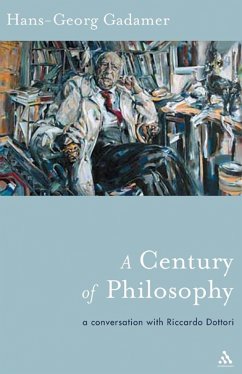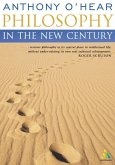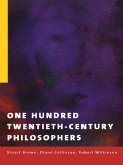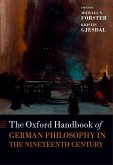A philosophical and historical testament to the twentieth century, this volume consists of a wide-ranging series of interviews conducted in 1999/2000 between the then centenarian and his former assistant and associate of over thirty years, Riccardo Dottori.
These ten dialogues distill and situate Gadamer's philosophy in the context of what has arguably been the bloodiest century in human history. In the course of the interviews, Gadamer addresses-often critically-the work of a wide variety of philosophers, including Heidegger, Nietzsche, Jaspers, Popper, Vico, Habermas, Rorty, and Derrida. He also elaborates on German philosophy during the Nazi period; and, in one of the more fascinating conversations, we are treated to a glimpse of Gadamer's personal perspective on the question of Heidegger's Nazism, including a discussion of the political influence that great philosopher's wife, Elfirde, had on him that tends to contradict most other published accounts. With the possible exception of his autobiography 1985, A Century of Philosophy is perhaps the most accessible expression of Gadamer's life and work in English today.
These ten dialogues distill and situate Gadamer's philosophy in the context of what has arguably been the bloodiest century in human history. In the course of the interviews, Gadamer addresses-often critically-the work of a wide variety of philosophers, including Heidegger, Nietzsche, Jaspers, Popper, Vico, Habermas, Rorty, and Derrida. He also elaborates on German philosophy during the Nazi period; and, in one of the more fascinating conversations, we are treated to a glimpse of Gadamer's personal perspective on the question of Heidegger's Nazism, including a discussion of the political influence that great philosopher's wife, Elfirde, had on him that tends to contradict most other published accounts. With the possible exception of his autobiography 1985, A Century of Philosophy is perhaps the most accessible expression of Gadamer's life and work in English today.









